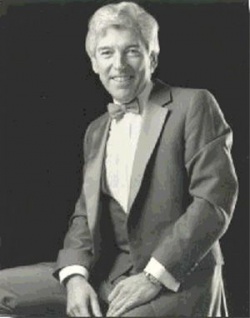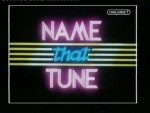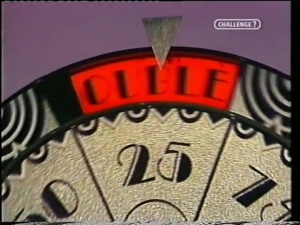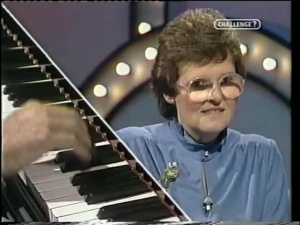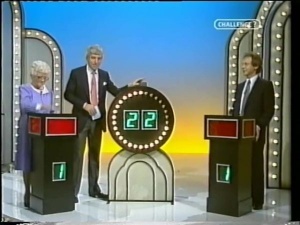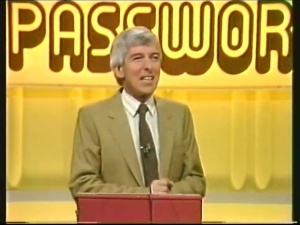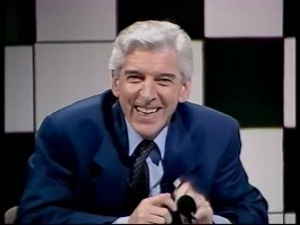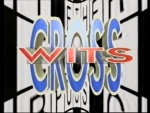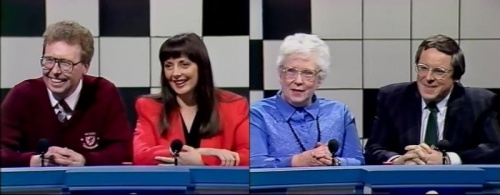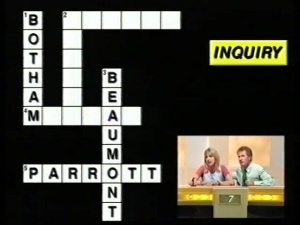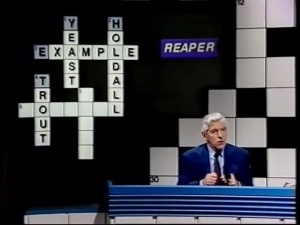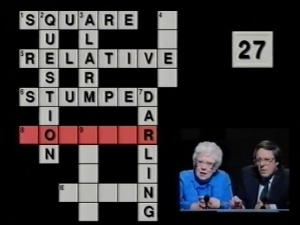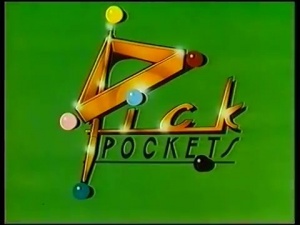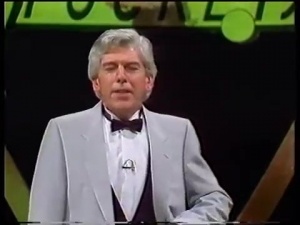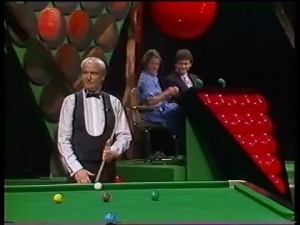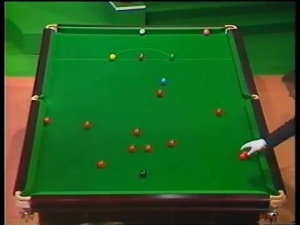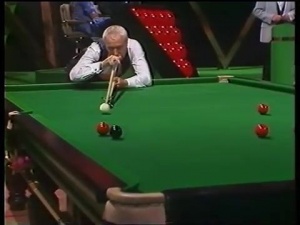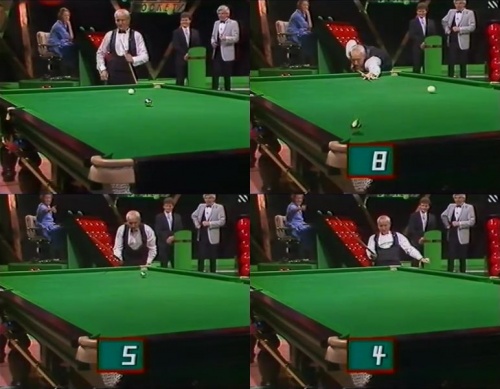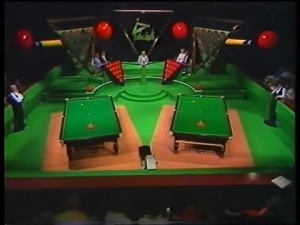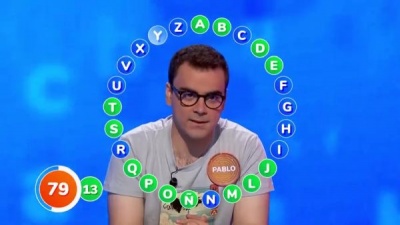Weaver's Week 2021-07-25
Last week | Weaver's Week Index | Next week
Once more, we have the sad duty to give an obituary. It also gives us the excuse to review one of those pilots circulating in the community.
Contents |
Tom O'Connor
Born on Hallowe'en 1939, Thomas Patrick O'Connor was educated at St Mary's College in Crosby, and often took holidays to the Isle of Man – it was as inconvenient for his family as for his Irish relations. He trained as a teacher at St Mary's in Twickenham, and worked at St Joan of Arc school in Bootle. He taught maths and music, and found that his teenage charges were not always gripped by his lessons. "The only way I could think of getting through to them was to tell jokes. It worked a treat and that's how the comedy started," he later recalled.
At the time, Tom O'Connor was working a double shift: a teacher by day, and a club singer by night. His country singing was augmented by some of the jokes he'd worked before the difficult audience of fifth-formers – always funny, never rude. Gradually, Tom took more bookings for his comedy than for his singing – a decision helped by the way clubs paid comedians better fees.
Tom's television debut was on The Comedians in 1972, a show giving space for the standups from the Northern club circuit. Russ Abbott came through the show to stardom, as did Bernard Manning. Tom O'Connor stayed in the classroom, finishing his night's work at 3am, rising at 7 to meet his pupils.
Eventually, Tom gave up the teaching, and his headteacher Steve Brown gave him the best leaving present – a nomination for Opportunity Knocks. Hughie Green's show was to the 1970s as Got Talent is for the present day: a launchpad for new talent, some of whom will go on to great success. Tom won three weeks running, and was approached by Bernard Delfont to host his game show Name That Tune.
Originally an interlude in Wednesday at Eight, then Night Out at the London Casino and London Night Out, Name That Tune became a show in its own right in 1981. The programme's formality was remarkable: a live orchestra in the studio, Tom saying every week how the contestants had been pre-selected for their knowledge of popular music. For the first round "Melody Roulette", he'd instruct the contestants to keep their arms by their sides until they buzzed, so everyone stood very stiffly.
"Melody Roulette" was the round with the Double Bubble, the contestants would get anything from £25 to £200 for naming that tune. "Sing a note" asked the contestants to name various songs performed live by Maggie Moone (or Sheeba, if we're lucky), and write their answer down. "Bid a note" is the one everyone remembers, a clue to the song, then the contestants bid down from seven notes to just one.
The rounds before the break were played for cash and prizes. "Golden Medley" determined the show's winner: buzz in to identify songs, first to seven wins. No more than 5 seconds per song, no more than 30 seconds in the whole round, better score wins if time runs out. The "Prize Tune" was a final 20 seconds, played on the piano, with a further ten seconds for the player to identify the song. And, to ensure there was no help from the audience (er, er, we mean distraction from the audience), our finalist was popped into a soundproof box, with a scale from Ronnie Price on the piano to make sure their headphones were working. A car if you win.
Lots of little rounds, Name That Tune kept the music flowing and the prizes moving. It helped that everything was complete in 25 minutes, none of the hour-long slots that have blighted the Alan Carr revivals.
ITV had already commissioned Tom O'Connor, a variety show starring the new talent as host and comedian. The name was reused when Tom moved to the BBC in 1984; he'd later host The Tom O'Connor Roadshow, a lunchtime show going out and talking to people who watch lunchtime telly. While at the BBC, he hosted I've Got a Secret, one of the many shows inviting celebrities to guess the strange claims to fame of the regular public.
Tom's other game shows included the one-word competition Password; the pontoon-based quiz Gambit; astrology entertainment The Zodiac Game; the self-explanatory A Question of Entertainment; and daytime experiment That's News to Me. He was a regular guest on Countdown, entertaining the audience and often sharing the warm-up with the resident comic.
Tom was an old-fashioned talent: he sang, he told jokes, he entertained. He was a safe pair of hands, never likely to let fly with expletives or off-colour jokes. It was a surprise in 1988 when news about his affair with a much younger woman broke; his wife Pat stood by her husband. Pat survives Tom, as do their four children Anne, Stephen, Frances, and Helen.
Tom O'Connor fell from primetime favour in the late 1980s: he was an old-fashioned talent, and wasn't up with the irreverent larks of "alternative" comics. He'd already done a little straight acting, a small part in Roll On Four O'Clock in 1970, but in 2000 he took on the role of Father Tom Cochrane in the continuing daytime drama Doctors. He'd remain with the cast for five years.
By then, Tom had retired to lucrative gigs on cruise ships and cabaret evenings. He won a week of Celebrity Come Dine with Me, and took the coveted Pointless trophy with his daughter-in-law Denise Lewis. He had a diagnosis of Parkinson's disease in 2007, and died from complications of the disease last Sunday.
...and never a cross word
A jaunty piece of music! A cutting-edge computer animation! Yes, after three hours with those buffoons at Camden Lock, ITV is back in charge of the Channel 3 network, and it's going to begin with an entertaining quiz.
Though it took them forever to tease out their A list, ITV eventually hit the winning formula for 9.25. Supermarket Sweep in the autumn, Win, Lose or Draw in the winter, and Crosswits for the spring and early summer. Unlike the other shows, Crosswits was a cerebral challenge. There's no need to go wild in One Down, whatever Simon Etchell's music might say.
Teams of two took turns to solve mildly cryptic crossword clues. In the main game, each puzzle was linked by a key word: after solving a clue, our pairs could buzz in and identify the link. Clues were mild: "Green and yellow wire goes to ground" gives earth, "Adjust the watch between game and match, we hear" gives sett, "Turbot hamper conceals beefy" gives Botham, and "O Zara in such a state" yields Arizona.
It was a simple game, with themed rounds to break the incipient monotony. The song round gave words from a famous and popular song; the anagram round used the initial letters of the answer. The mystery round challenged a team to solve on just one clue: success earned a cordless phone, a typical small prize of the 90s.
For the viewer, the joy in Crosswits came from beating the teams. It came from the gentle competition: two celebs were booked for a week's shows, and a friendly rivalry naturally developed. Play was brisk, as we might expect from a former teacher. Tom kept up a stream of patter while the teams conferred, and didn't give long to spot the key word. He'd also give clues when it became clear that both teams were flummoxed.
Scoring was simple: one point per letter in a word, 10 points for each key word spotted. The winner went on to the bonus round: 10 clues in a minute to win a holiday. A week's fly-drive in the South of France? Marvellous.
Crosswits tickled the intellectual muscles of the brain, without ever saying it was difficult. It was rigorous, without ever being formal. These are tough and contradictory demands, Tom O'Connor did well to make the difficult look easy.
Finding connections between unrelated ideas is now Only Connect's domain, and we get some vague link between the shows. We idly wonder if Crosswits might be suitable for streamalong fun, and suggest it to the Bash and the Chair and the other good coders.
Pick Pockets
Tyne Tees in association with Chance Promotions, 1988
Back in 1988, Tyne Tees were trying to get a snooker quiz commissioned for the ITV network. One of the pilot episodes was made available on the intertubes some years ago, and ever since we've had the occasional email asking "why don't you list Pick Pockets?" We don't believe it was ever shown: there's no evidence for it in the various TV Times editions, nothing in the newspaper listings we've got access to. (It's difficult to prove a negative, and if you can shed further light on the show, we're all ears.)
So, from the file labelled "They didn't commission this series", we'll look at Pick Pockets. And we'll explain why it wasn't commissioned in this precise format.
Unusually, Tom's wearing a grey suit with a bow tie. It's smarter than he would normally be seen in – Tom was always smart casual, cuddly jumpers and open-necked shirts.
The participants are the contestants, plus an assigned celebrity (for the pilot, Rachael Heyhoe-Flint and George Layton). And an assigned snooker professional (for the pilot, David Taylor and John Parrott). And there are two snooker tables, each professional player breaks on the opponent's table. The referee is Len Ganley, by far the most famous snooker ref of the late 80s.
Each team has 15 questions – asked to contestant and celeb alternately, no conferring, answer quickly. Every correct answer removes a red from that team's table – but it's a red chosen by the opposition's professional player. For each error the team makes, they'll have to leave a red lying about the table.
All of this means there's a lot of quizzing and not much potting. Just two snooker strokes in the first half of the show.
After the break, it's all snooker. The professional nominates a pocket for the yellow – bearing in mind that there are red balls to avoid, and they might make the shot more tricky than it could be. Half the points will be awarded if the team answer a question correctly, half from actually pocketing the ball. The show gets its name from how the player picks his pockets.
The break only continues if the ball is potted in the chosen pocket, and the question is answered well. Miss either element and play will go to the opposition. A missed ball leaves the table – you only get one shot to down the brown. Play alternates until one team has finished and both teams have had the same number of snooker breaks.
The winning contestant puts himself on the Gold Spot. Six questions build up time, 10 seconds per right answer. The professional has that time to pot the six colours – after potting the black, a Gold Ball appears on the blue spot. Pot in one shot for the £1000 jackpot. Smaller prizes for not completing the task.
Pick Pockets is a perfectly serviceable show. If ITV had made a series in the late 80s, we'd have watched. But compared to Big Break, it all feels rather artificial – they spend a lot of time setting up the game, and it's over very quickly. And it's over-staffed, the celebrities don't add very much and tend to distract from the snooker player. We'd love to watch John Parrott, why do we have to listen to George Layton burble on?
The biggest crime: they have a snooker table (two, in fact), and barely use it for half the programme. Big Break takes some time to introduce everybody, but once it starts, it's shot after shot after shot. Pick Pockets is a quiz with a snooker table.
In other news
Congratulations to Pablo Díaz, who won €1 828 000 on Antena 3's Pasapalabra show. It's the one known here as Alphabetical, where you've got to go round the alphabet perfectly in limited time. Pablo has been on the show for 255 episodes: thanks to the "losing champion goes back into the contestant pool" rule, he faced just 14 other contestants.
A new permanent host for Just a Minute has emerged: it's Sue Perkins. She's one of the Big Seven current players of the game – alongside Julian Clary, Tony Hawks, Stephen Fry, Graham Norton, Paul Merton, and Gyles Brandreth. All of these players were given a spin in the spring, and Sue is going to be a great choice.
Only Connect continued, with the Animal Lovers beating the Gamesmakers by 23-15. Definitely an episode for the BBC2 demographic, featuring Reg Varney, Des Lynam, Han Solo, and how you can't take your own folding chair to a Disney resort.
University Challenge had St Hilda's Oxford inch past University College London by 140-135. Host Jeremy Paxman gave both teams the benefit of the doubt, perhaps he wanted to audition for the Just a Minute job. UCL's 135 means they'll need to watch every remaining heat to find if they can come back through the repêchage.
The links in the Crosswits crosswords? Captains on A Question of Sport, and the anagram resolves to "scythe". Well done if you got those at home.
There's a lot of sportsball on the BBC for the next couple of weeks. Two more episodes of Michael McIntyre's The Wheel and Take Off with Bradley and Holly enliven BBC1 on Saturdays. ITV has new episodes of Rolling in It and The Void.
This year's Bake Off the Professionals are crowned (C4, Tue). Celebrity husband David Mitchell has a new run of The Unbelievable Truth (R4, Mon). Cooking With the Stars continues on ITV, Apocalypse Wow on ITV2, and Can I Improve My Memory? on Channel 4.
We'll be back in two weeks, on 8 August, when we plan to review Can I Improve My Memory?, unless we forget.
Pictures: Thames, Tyne Tees, ITV Studios.
To have Weaver's Week emailed to you on publication day, receive our exclusive TV roundup of the game shows in the week ahead, and chat to other ukgameshows.com readers, sign up to our Google Group.

